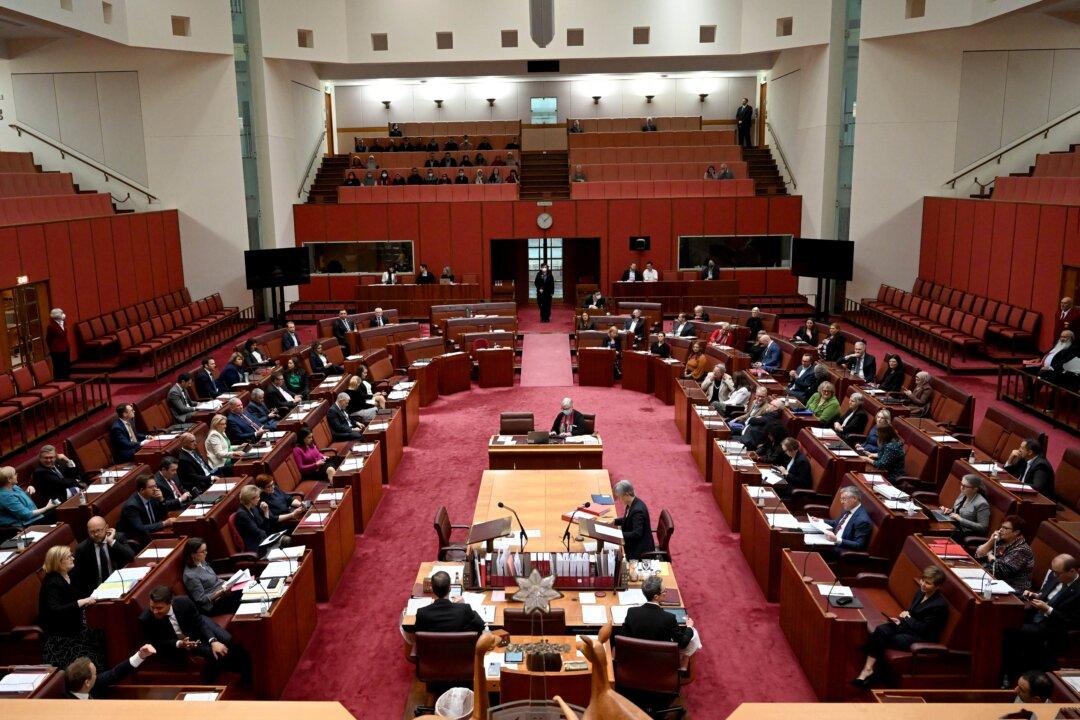The centre-left Labor government’s Climate Change Bill has passed the Senate with support from the left-wing Australian Greens party and key crossbench members, paving the way for a new emissions reduction target to become law.
The legislation, which cleared the upper house on Sept. 8, will impose a 43 percent emissions reduction target by 2030, as well as net-zero by 2050.




